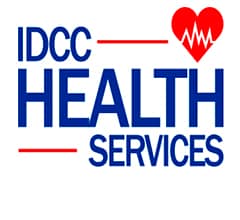Embarking on a health journey? You might’ve heard whispers about a special breed of doctors who seamlessly combine traditional and alternative medicine. But how do you find these unique practitioners? Dive in as we unravel this mystery step by step.
Visit an integrative medicine doctor in Brooklyn today!

Understanding Integrative Medicine
What is Integrative Medicine?
Integrative medicine is a holistic approach to health care that combines conventional medical practices with effective alternative therapies, ensuring a comprehensive care strategy for patients.
Why Choose an Integrative Doctor?
These doctors focus on treating the whole person, considering the interplay of body, mind, and spirit, often leading to more personalized and effective care.
Steps to Find the Right Integrative Medicine Doctor for You
1. Determine Your Needs
List your specific health concerns and goals. Knowing what you’re looking for will streamline your search.
2. Word of Mouth Recommendations
Ask friends or family members if they’ve had positive experiences with any integrative doctors. Personal referrals often provide insightful leads.
3. Online Directories
Websites like the American Board of Integrative Medicine offer directories of certified practitioners. Simply search “integrative doctor near me” for options in your vicinity.
4. Read Reviews
Once you’ve shortlisted some doctors, check online reviews. This can give you a glimpse into others’ experiences with the practitioner.
5. Check Qualifications
Ensure the doctor has valid credentials and has undergone training in both conventional and alternative medicine.
6. Schedule a Consultation
Before settling on a doctor, schedule a consultation. This face-to-face interaction can help gauge if they align with your health needs and philosophy.
Questions to Ask During Your Consultation
Experience with Specific Conditions
Ask if they’ve treated individuals with similar health concerns as yours. Experience can often translate to better care.
Approach to Treatment
Understanding their preferred treatment modalities can help you determine if their approach aligns with your comfort and beliefs.
Availability and Follow-up
Ensure they’re available for follow-ups and are responsive to any concerns or questions you may have post-treatment.
The Role of an Integrative Medicine Doctor in Your Health Journey
Tailored Health Plans
These doctors often craft personalized health plans, factoring in your lifestyle, preferences, and specific health needs.
Emphasis on Prevention
By focusing on root causes and holistic wellness, integrative doctors often prioritize preventative measures, equipping you with tools for long-term health.
Integrating Your Health Care
If you’ve been searching for “integrative medicine doctor” or wondering about their role, remember that these practitioners serve as bridges, uniting the best of conventional and alternative medicine. They view health as a collaborative journey, ensuring every patient feels heard, understood, and optimally cared for.
Conclusion:
The realm of integrative medicine offers a refreshing take on health and wellness. By combining the strengths of multiple healing traditions, these doctors aim for holistic care. And now, with our guide in hand, you’re well-equipped to find the perfect integrative physician to accompany you on your health journey.
